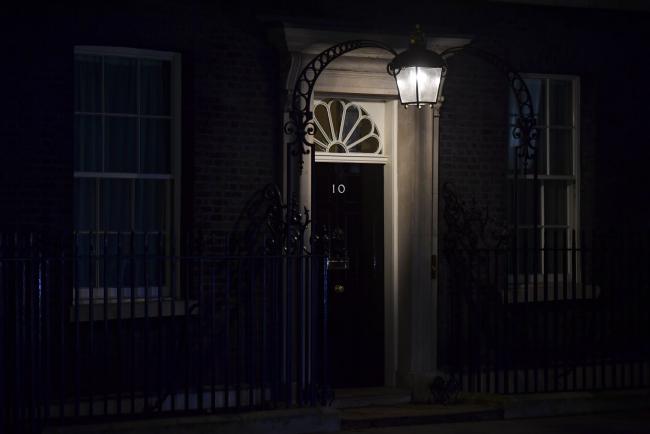(Bloomberg) --
With U.K. Prime Minister Boris Johnson in intensive care with coronavirus, his team of colleagues will step-up to run the British government. Here’s how it works.
Who is in charge?
Dominic Raab, the 46-year-old foreign secretary, also has the title of “first secretary of state,” making him Johnson’s deputy. He’s a blunt former lawyer who has been both an ally and rival to Johnson.
What powers does he have?
Unlike the vice president in the U.S. if the president is incapacitated, Raab doesn’t have the full powers of the prime minister. He’s minding the shop while Johnson is out of action: Raab will chair the government’s daily Covid-19 meeting and make final decisions about the response effort, but he will lean heavily on other Cabinet ministers.
It’s not clear who has responsibility on major national security issues such as ordering a nuclear attack. Asked about the issue on BBC Radio on Tuesday, Cabinet Office minister Michael Gove declined to comment.
“It is important to have 100% clarity as to where responsibility for U.K. national security decisions now lies,” said Conservative MP and former defence minister Tobias Ellwood on Twitter. “We must anticipate adversaries attempting to exploit any perceived weakness.”
What happens if Johnson can’t carry on, or resigns?
The top job wouldn’t automatically go to Raab. With a party leadership contest unlikely during a national emergency, the Cabinet would recommend to the Queen an immediate successor, and she would appoint a new prime minister.
Whoever replaced Johnson wouldn’t be an ‘acting’ prime minister: they would have the role in full, until they chose to resign or were forced out.
How are decisions being taken?
Government decisions are being taken “completely by consensus” and ministers are working “in a team way,” Gove said.
He said the Cabinet and government ministers are divided into units focusing on the different aspects of the virus response, such as health, the economy and public services. Gove said the set-up has been designed to share responsibility and ensure if someone falls ill necessary work can still continue. Gove himself is now self-isolating, after a family member became ill, though does not have symptoms himself.
What decisions are coming up?
The U.K. government will review whether to extend the nationwide lock down on Monday, and it needs to decide whether to tighten, retain or remove any of the restrictions.
To save lives, Britain also needs to quickly acquire thousands more ventilators to avoid its health-care system being overrun, and rapidly expand its virus testing regime so doctors and other essential employees can return to work.
Meanwhile, with the economic and social costs of the lock down rising, ministers are under pressure to devise a strategy for lifting the restrictions over time.
©2020 Bloomberg L.P.
